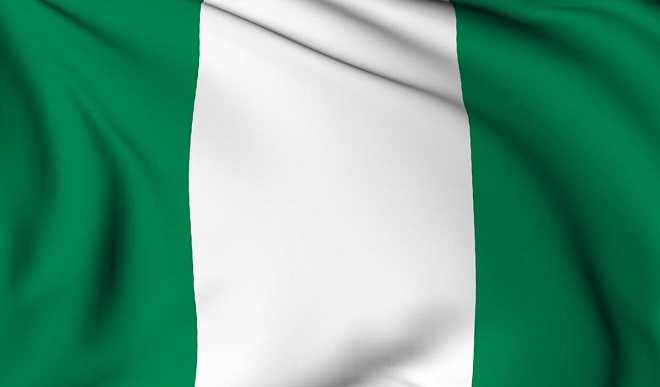
Continued from last week
The mismanagement of our freedom was an endemic issue; it happened west, south, east and north, and perhaps puts a lie to the thinking that we may have done better as a people if we were homogenous. Note that these amounts above were large monies back then.
From extracts of Feyi Fawehinmi’s article which was a review of a book titled “This Present Darkness”, written by a colonial historian, I discovered that Awolowo had accused the Native Court system in the north of nepotism, had complained that judges received bribes, and that Emirs promptly replaced appointees of a former Emir with their own loyalists, thereby compromising the integrity of the courts. It was also documented that since 1922, the Principal of Hope Waddell Institute in Calabar had complained about his students procuring charms and talismans from India rather than reading their books. He intercepted almost 3,000 of such nonsense.
In the same book it was captured that Nigerian women had become mass sex workers in Ghana since 1939, and in 1950 Sir Abubakar Tafawa Balewa – not yet a Prime Minister – had stated that ‘the twin curses of bribery and corruption (had) pervade(d) every rank and department of government’. In 1952 an anti-corruption campaigner (one would have thought that is a modern profession), named Eyo Akak complained about our ‘consumerism’ and how every ex-serviceman who just returned from Burma War, wanted a bicycle before going back to their villages, while every civil servant wanted a car (the same way our top civil servants and politicians don’t joke with their luxury SUVs these days). He even blamed the women then for desiring to marry only rich guys. In 1959 the western Regional Minister of Finance wrote that he was looking for ways to ‘crack down’ on school principals who collected money from students for sundry reasons.
Recently in The Punch newspapers I read an interview by one Reverend Akintayo, who worked in Apapa Ports in the 1960s, and how because he wasn’t cooperating with the fraud that his fellow tally-clerks were perpetrating (recording 50 boxes of goods as 40), they planned to kill him, only to deliberately crush someone else with a crane. They threw the unfortunate person into the lagoon while he watched from his hiding place and later ran away. Nigeria has been bad for long.
The diagnosis
We can see the beginnings of what is today called ‘corruption’ in Nigeria. That is why I say that the war against corruption hasn’t quite started. Our lack of vision has seen to it that we only mouth platitudes and do nothing serious about our issues. It seems that the inability to play straight – or perhaps for us to deal decisively with those who game the system – is more deeply ingrained in our culture than we admit. It isn’t even a Nigerian affair. I read Michela Wrong’s book “It’s Our Turn To Eat” a few years back, where she documented how it played out in Kenya as well; exactly like in Nigeria. Till tomorrow, tribes in Kenya see the ascension of presidents as the turn of some to eat, while others wait and bid their turns.
If we critically analyse this problem what will emerge?
1. Perhaps we were (and still are) confused about the transition between one economic system (traditional African) to a modern (western) one. The new one does not allow for many undue advantages which we still take anyway.
2. Maybe those who found themselves in positions of authority already saw themselves as emperors and perhaps they were. Someone remarked the concept of democracy is pretty new to Africans. We still behave like we are only used to the ‘kaabiyesi’ system (where those in authority can never be questioned).
3. Maybe the allure of the good life that westernisation offered was just too much for these lucky new administrators that they couldn’t resist the enjoyment that the new money promised them.
But I would still posit that we cannot lay all the blame at the doorsteps of these our forefathers. Certainly, the blame for the public sector screw-up cannot go solely to Murtala Muhammad. The problem had been there, simmering and growing. The leaders of the First Republic were in a peculiar position. They had no roadmaps. There were no textbooks on “How to Manage a Newly-Independent Country”. They didn’t even have means of communication. The phones were few, and hardly worked. There were no mobile phones, no emails, no WhatsApp, Facebook, Twitter, and all the rest, which could assist them in sharing ideas and keeping each other in check. But some, many, most of them took undue advantage for selfish reasons. Still I forgive them.
I posit that the blame for where Nigeria is grew with the ages, and so we today share the larger part of it. Why? Because with the benefit of hindsight (20-20 vision), we should have evolved some vision, if not to correct the errors of the past, at least to ensure that our issues are not daily deepened. In spite of the benefit of history, and at least 100 years of higher education (including at least 60 with universities established here), we seem to be making worse decisions, and showing less foresight than they did back then. And we are more drawn to the allure of living the western life on stolen money, we have no vision for a sustainable society where a majority live above poverty, we mismanage the commonwealth and we still have our primitive ways fully intact. Meanwhile we have access to all the compasses, billions of internet pages and everything that can allow us make better decisions. Whereas the colonial masters could take undue advantage of our forefathers, today, many of us gladly mortgage our country for a visa or less.
The future
I was reading somewhere on Facebook today where someone compared the GDP growth rates of some African countries (at around 4%) with Nigeria’s IMF-projected growth rate of 0.8%, as a way of indicting Buhari’s dismal government. What worried me, and caused me to write this article, is how the IMF and other multilateral agencies predict growth rates for a country as big as Nigeria, with millions of university graduates and Professors, and they are often accurate. What those predictions, and the casual, almost offhand way they are made mean to me, is that they are stating that we will never be able to think for ourselves, this year and the next.
My message here is that if we lost the past, and perhaps the present, we needn’t lose the future. It may be safe to say we need leaders that have vision for what Nigeria could be and achieve, but my fear is that now we need much more than that. We need a mass of people with vision. And we need to mesh these visions together for our rapid progress. The key reason why this should be achievable is that we’ve been exposed to higher education for long enough. Education is not everything. Degrees and certificates are even much less. But those investments should begin to count for something in our country, and it is more likely to find people with sights that go farther among those who have been to a universal place called a university, or at least interacted for years with people of diverse origin, while exposing themselves to new knowledge.
We need a mass of people, with vision. We need to begin to blend that vision, to take Nigeria forward.
Concluded




